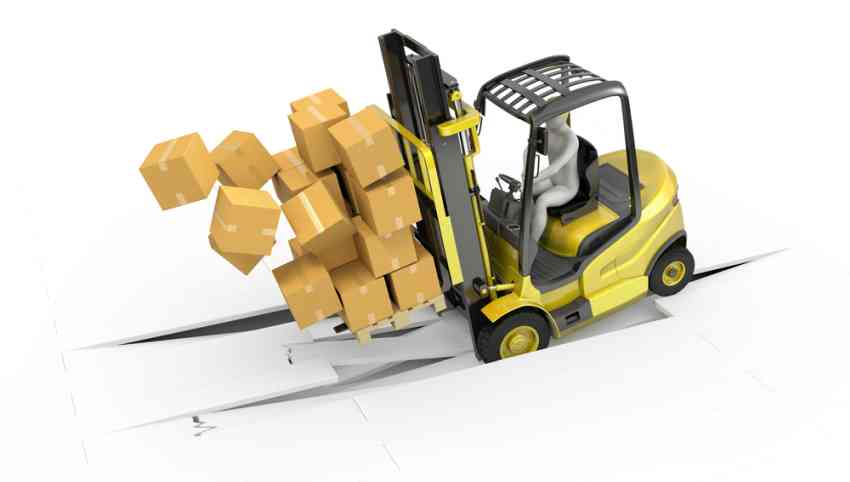Across the manufacturing industry, industrial forklifts are used far and wide, acting as an essential asset for a variety of businesses. Providing the ability to move more substantial and larger objects or loads, these vehicles offer warehouses and yards significant efficiency.
However, when not operated correctly, this type of machinery can cause serious injuries, or in extreme cases – death.
Because of these risks, it’s crucial that any business utilising forklifts provide their workforce and staff with high-quality training, permits and licensing. No one should get behind the wheel until each of these boxes are checked off.
In order to help you, as a business owner, understand the implications and risks associated with these vehicles, we’ve put together a few considerations to keep in mind.
Capacity matters: overweight and unbalanced loads
Naturally, we assume forklifts are at their most dangerous when they’re moving, but those in the vicinity can still be in danger if the vehicle is stationary. If lift trucks are in the middle of loading and unloading, practices that aren’t up to scratch can cause serious ramifications.
The most common types of accidents associated with forklifts are usually related to overweight or unbalanced loads. No matter what kind of vehicle you’re using, there will always be clear and concise instructions on how much it can handle in weight. Failing to stick to these can cause the driver, and those around them, to be in direct danger.
Managing traffic
The space where forklifts are operated tends to have pedestrians and staff going about their day too. It’s essential to keep these traffic streams are kept separate – be it through individual roadways, elevated platforms to walk on or other alternative ways to get around.
Business owners also need to make sure the entire space is well-lit and has a good line of sight; this allows for collisions to be avoided, as operators can see where oncoming traffic may pop up.
Beyond this, there are a number of traffic management programs and training courses that allow staff to balance machinery and limited space safely.
Maintenance is key
It goes without saying that, just like all other machinery, forklifts require frequent servicing. This includes inspections to ensure there are no hidden problems that might lead to serious injuries in the future.
Above all, storing the vehicle is also crucial to the safety of those in the warehouse. Additionally, carefully dedicating a space to your machinery will ensure you’re not putting it at risk of elements, such as rust or general wear and tear, and will keep it out of harm’s way.
Tip: Never leave your forklift idling for an extended period of time, or in an enclosed area. Harmful fumes from carbon monoxide can cause those working in the space to feel disorientated, light-headed or nauseous. Always ensure the area has plenty of ventilation and that the forklift is turned off when not in use.
Not sure if your forklift needs a bit of TLC? Get in touch with the team at Damoli now.
Damoli Forklift Services offer one-stop shop for forklift hire, sales and servicing. We have a wide range of gas, diesel and electric forklifts ranging from 1 tonne right through to 45 tonne container handlers. We also have high reach forklifts and specialised scissor lifts available.

